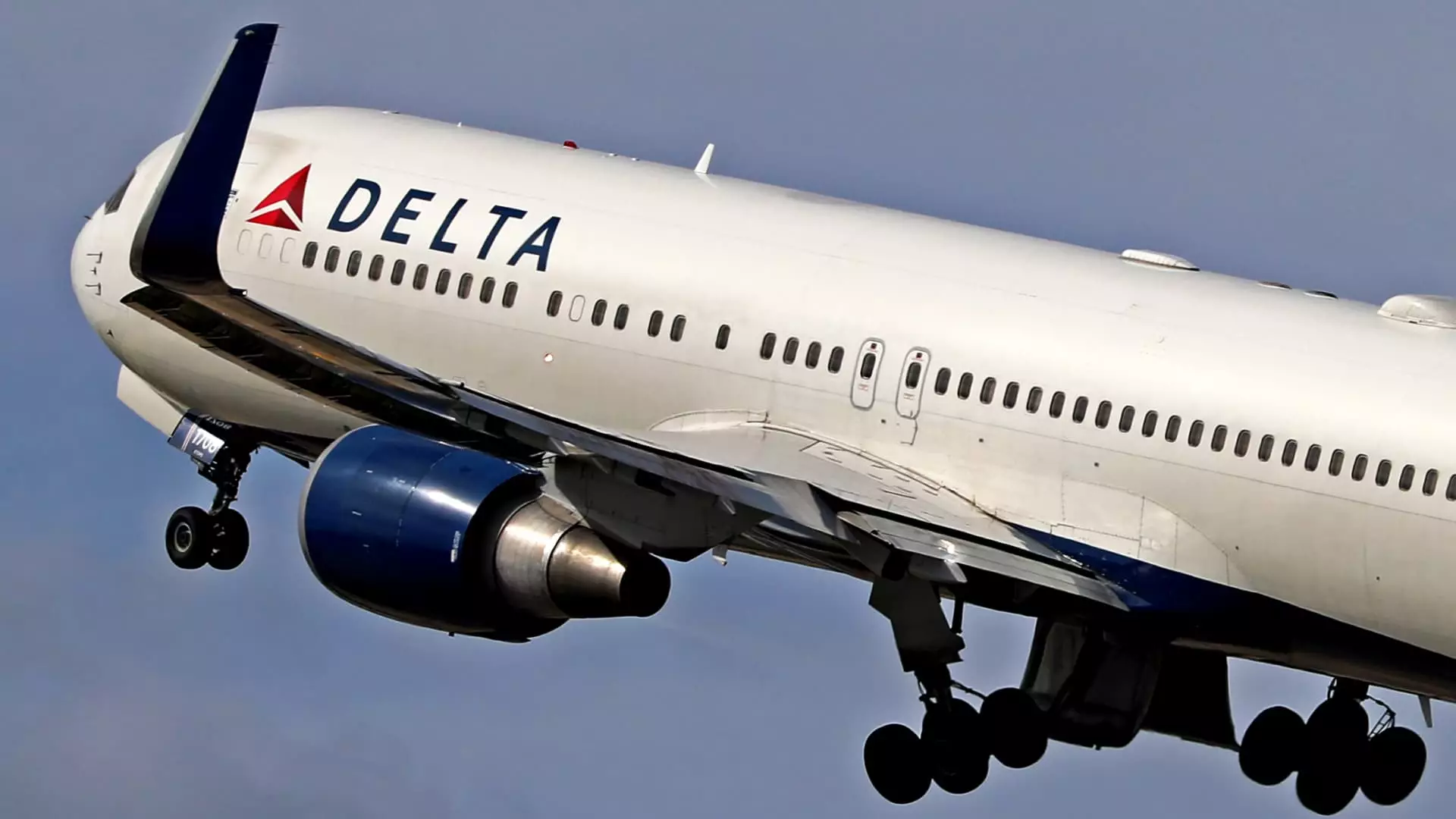Recent trading sessions have unveiled a distressing narrative for the airline industry, as stocks continue to plummet, prompting fears of significant repercussions for an already fragile sector. As major airlines grapple with a downturn in travel demand—the kind of downturn that industry veterans have not witnessed in years—Wall Street’s collective nerves appear to be fraying. When indices plummet, it’s often a telltale sign of deeper underlying issues, and the airline sector’s recent struggles are emblematic of a generalized consumer hesitation in today’s economy.
Downgrades Signal Trouble Ahead
In a move that reverberated through the market, Jefferies recently downgraded Delta Air Lines, a titan of the U.S. airline industry, from a “buy” to a “hold.” The investment bank not only slashed its price target nearly in half but also hinted at potential downgrades for 2025 forecasts. Such actions suggest that even the most revered companies in the sector are not impervious to market pressures. It is a stark reminder of how quickly a once-reliable profit engine can come under fire when consumer appetites shift dramatically. With Delta seeing its stock drop over 3% following this announcement, investor confidence appears to be hanging by a thread.
The Broader Impact of Economic Concerns
The decreasing consumer confidence isn’t an isolated problem confined to Delta. American Airlines and Southwest Airlines experienced similar fates, each witnessing substantial declines in stock prices. The narrative is further complicated by the looming threat of tariffs that might exacerbate an already tenuous situation. It begs the question: how resilient can these companies be when faced with persistent external economic pressures? As travel often correlates with discretionary spending, a downward turn in household spending power—coupled with a significant 7.2% decrease in airline-related expenditures—portrays a bleak outlook for the sector.
Consumer Sentiment: The Elephant in the Room
Insights from a recent Bank of America report unveil troubling consumer behaviors. With nearly half of surveyed households indicating a reluctance to book travel trips, it becomes evident that shifting sentiment could be the main factor driving the current turbulence within the airline industry. When combined with variable factors like adverse weather and a late Easter holiday, the confluence of events risks spiraling into a more severe downturn. It raises fundamental questions about the sustainability of travel demand and further underscores the industry’s vulnerability to external shocks.
The Future is Uncertain: Will There Be a Turnaround?
As the momentum of uncertainty gathers, airline executives are now in a precarious position, awaiting their earnings calls with an intensity that has become palpable. With Delta at the forefront of the earnings season, all eyes will be on them, but they aren’t the only carriers preparing to address their diminished forecasts. The reality is that, as much as airlines may adapt their services to cater to premium travelers, the foundation that sustains these enhancements is fundamentally linked to the overall health of the economy. Should consumer confidence remain shaky, the path to recovery for airline stocks might remain a long and winding road.
This increasingly complex landscape serves as a wake-up call for investors and industry leaders alike; strategic foresight will be crucial as they navigate these turbulent winds.

Leave a Reply